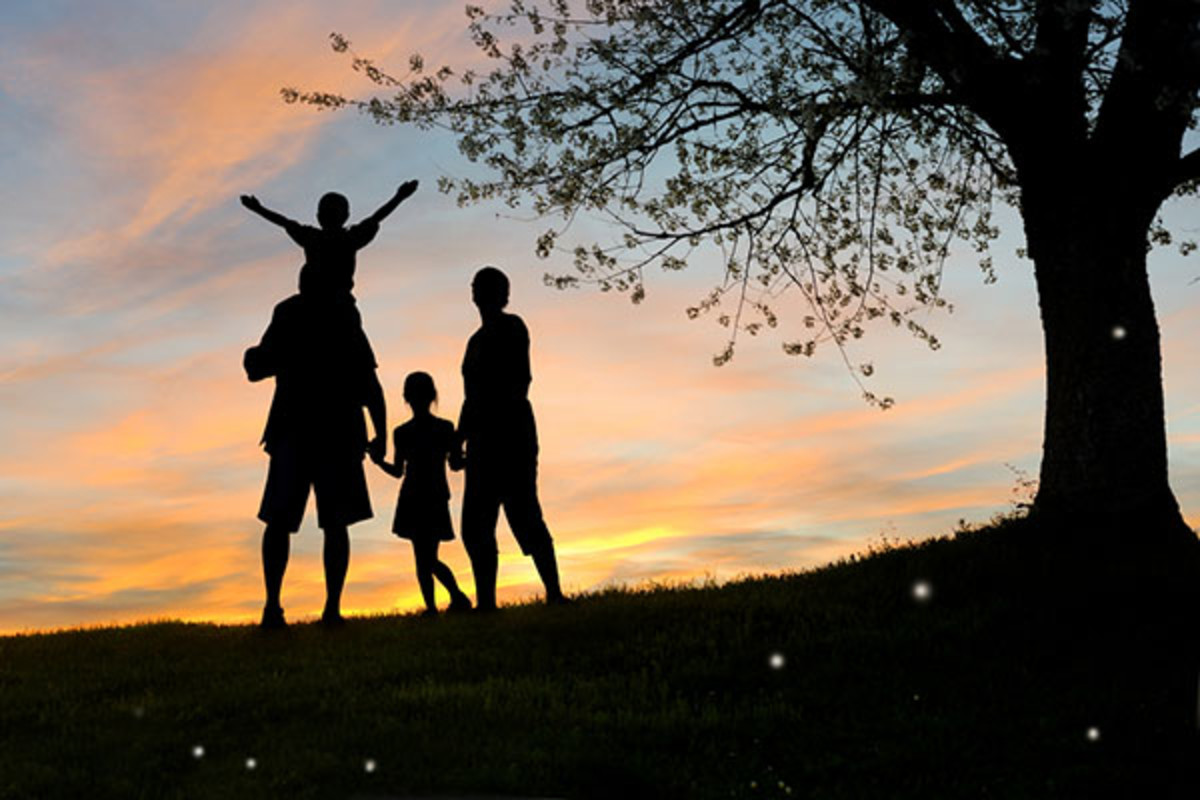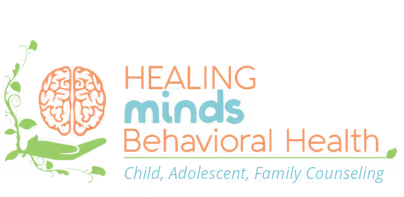Behind Closed Doors: The Impact of Domestic Violence on Children

Within the child lies the fate of the future. -Maria Montessori
According to the national Coalition Against Domestic Violence, domestic violence can be defined as the willful intimidation, physical assault, battery, sexual assault, and/or other abusive behavior as part of a systematic pattern of power and control perpetrated by one intimate partner against another. It includes physical violence, sexual violence, psychological violence, and emotional abuse. The frequency and severity of domestic violence can vary dramatically; however, the one constant component of domestic violence is one partner’s consistent efforts to maintain power and control over the other.
Domestic violence is an epidemic affecting individuals in every community regardless of age, economic status, sexual orientation, gender, race, religion, or nationality. It is often accompanied by emotionally abusive and controlling behavior that is only a fraction of a systematic pattern of dominance and control. Domestic violence can result in physical injury, psychological trauma, and in severe cases, even death. The devastating physical, emotional, and psychological consequences of domestic violence can cross generations and last a lifetime.
As the number of domestic violence incidents reported to the San Antonio Police Department continues to steadily uptick over the past few years, one aspect that has historically been overlooked, or misunderstood, is the type of impact that it can have on children. It is only until recently that the startling toll on children who witness domestic violence is being understood. Current research is now shedding a light on the fact that witnessing abuse carries the same risk of harm to children’s mental health and learning as if the children had been abused directly.
The following is a set of selected questions and answers from an interview with Betsy McAlister Groves, MSW, a member of the National Child Traumatic Stress Network and founder of the nationally recognized Child Witness to Violence Project at Boston Medical. In this interview, she focuses on, and explains, the particular risks of exposure to domestic violence for children. For access to the complete interview, see the reference listed at the bottom of this page.
How many children are affected by domestic violence?
Anywhere between 3 and 10 million children are exposed to domestic violence in the United States every year (Jouriles, McDonald, Norwood & Ezell, 2001). Studies suggest that the majority of children who are exposed to domestic violence are young---under the age of 8 (Fantuzzo, Boruch, Beriama, Atkins & Marcus,1997).
Does domestic violence only occur in economically disadvantaged families?
No, children in all socioeconomic groups, all ethnicities, all races, are witness to domestic violence every year. There are child victims of domestic violence in every school, in every pediatrician’s practice, in every neighborhood. Of the children treated by the National Child Traumatic Stress Network, most of those who have been exposed to violence were exposed through their families rather than through their communities or schools.
How does exposure to domestic violence affect children?
In the short term, the effects may include anxiety, depression,aggression, difficulty sleeping, and trouble paying attention in school. As with other forms of trauma – traumatic stress reactions may occur, with three different kinds of symptoms: hyper arousal; re-experiencing; and avoidance. Hyper arousal means that the child may be fearful, nervous, jumpy, and react strongly to any other scary experience. Re-experiencing means that the child may have repeated or intrusive thoughts about what happened or keep feeling sensations in the body that are tied to what happened. Avoidance means that the child may try to avoid any reminders of the trauma. This may cause him or her to withdraw from normal activities.
Young children who witness domestic violence often worry about their caregivers and are afraid to be separated from them. Children may express their distress through physical symptoms, such as stomach aches or headaches. Young children may use play to act out certain aspects of what they’ve witnessed. Sometimes they just act out the same events over and over again in their play; sometimes they express a wish to change the outcome. For example, a boy who witnessed his mother being beaten by his father and felt helpless to intervene pretended he was a superhero who rushed in at the last minute to save her.
If a child is too young to understand what’s happening, how can there be any negative effects?
Children don’t need to understand to respond emotionally and physically. For example,very young children’s heart rates go up in response to the sound of an adult screaming or crying. This hyper arousal may not just end after the screaming stops. The youngest child we treated was an 11-month-old who was with her mother when the mother’s boyfriend attacked her. The baby kept waking up screaming at night. She screamed whenever the mother left her, even if the mother only went into another room of the house. She cried all day in daycare.She wasn’t eating well. Even though the baby didn’t understand what had happened, she responded to the intensity of what had happened and to the change in her mother’s mood afterward.
How does domestic violence affect a child’s feelings about his or her parents?
Children who’ve witnessed domestic violence often have confused and contradictory feelings about their parents. They worry about the safety of the parent who has been abused, and they also worry that their parents will not be able to protect them. They may see their fathers as generous and loving some of the time, and terrifying and dangerous at other times. For a child, it may feel less confusing to simply side with the perpetrator and blame the victim. Often children feel torn over loyalties and caught
How does domestic violence affect a child’s behavior at school?
A child may generalize from his experience at home to the rest of the world. If the world is like home, he figures, then it too must be scary,dangerous, and unpredictable. When a child comes to see the world as a dangerous place, he or she is more likely to read situations as dangerous. He’s more likely to expect any disagreement to end in physical violence. To defend himself, he may become aggressive.
For example, a six-year-old boy who had seen his father physically abuse his mother was standing in line at the water fountain at school. Someone behind him accidentally bumped into him. He reacted as if he had been attacked and shoved the other kid back. This kind of behavior can get a kid into trouble when he feels as if he’s just defending himself.
How does witnessing domestic violence affect academic performance?
All of the signs and symptoms that are associated with traumatic stress –hyper arousal, re-experiencing, sleep disturbances, avoidance – have negative effects on children’s capacity to focus and learn in school. For example, one little boy I treated said, “Whenever I see a blank piece of paper, I see the face of the man who attacked my Mom on that piece of paper.” Well, how can a child learn if every time he starts his class work, he’s confronted by such a disturbing image? Or a child in school might hear another child slam a book down hard on a desk and be instantly reminded of the sound of one parent punching the other. Any ordinary event that occurs in a classroom hundreds of times a day—bells ringing, people shouting, one child bumping into another—can trigger intrusive memories. These memories and images can get in the way of learning.
What about the long-term effects of witnessing domestic violence?
As with other forms of trauma, the effects may be profound,wide-ranging, and long-term. Adolescents who grew up in violent homes have been shown to be more likely to engage in anti-social or criminal activity. If you look at populations of juvenile delinquents, the percentage of kids who grew up in violent homes is huge.
One large study found that people who’d had adverse childhood experiences were more likely to have a number of different health problems as adults (Felitti et al.,1998). It found that having witnessed domestic violence in the home,particularly on a repeated basis, increased an adult’s risk of substance abuse,anxiety, depression, and post-traumatic stress disorder.
How can treatment help children?
Usually,you can’t help the children without also helping the survivor of domestic violence. She needs information about safety or shelter. She may need support as she decides what to do about the relationship. For a child who is suffering from traumatic stress reactions, trauma-informed treatment is important and can be very helpful.
Active involvement of the non-abusing parent is crucial. One important goal of treatment is to strengthen the relationship between the victim and the child. Usually families need more than therapy; they need case management and advocacy for the survivor. If perpetrators want to change, there are treatments and support groups that can help. What children need first and foremost is safety. With older children we do safety planning. Maybe it’s just helping the child develop a plan for staying safe when his parents are fighting. This gives the child a sense of control so that he or she feels less vulnerable.
Another element of treatment is enabling the child or adolescent to talk about his or her experiences and make sense of them in the presence of a caring and neutral counselor. Often children will have what we call “cognitive distortions” about what’s happened or why it happened, such as blaming themselves. A counselor will work with a child to correct these misconceptions. For many children, it’s very helpful to create a “trauma narrative,” in which he or she makes a complete account of what’s happened. Kids tell us how relieved they feel just being able to share what happened with another adult who’s not competing fort heir loyalty. The events become less emotionally overwhelming to them. Trauma-Focused treatment can enable anyone at any stage of life to go back, revisit, and recover from the effects of domestic violence.
If you are currently experiencing domestic violence, consider reaching out to the local 24-Hour Crisis Hotline at 210-733-8810 or the National Domestic Violence Hotline at 1-800-799-SAFE(7233).
It can be hard to think about yourself when you’re dealing with domestic violence and doing your best as a parent. It helps if you remember that you are the most important person in your children’s lives and the biggest influence on how they respond to stress. If you don’t take care of yourself, both your body and mind,you will have less to give your kids in the way of guidance and support. Being able to cope with your own stress is good for you and your children. Start Healing Today.
References
Groves, B. (n.d.). The National Child Traumatic Stress Network. Retrieved from https://www.nctsn.org/sites/default/files/resources//questions_answers_about_domestic_violence.pdf
NCADV: National Coalition Against Domestic Violence. (n.d.). Retrieved from https://ncadv.org/learn-more.
Healing Minds Behavioral Health, PLLC is a private mental health practice with a specialization in trauma-focused services for children, adolescents, and families. You may contact us at 210-418-2546 for additional information.



